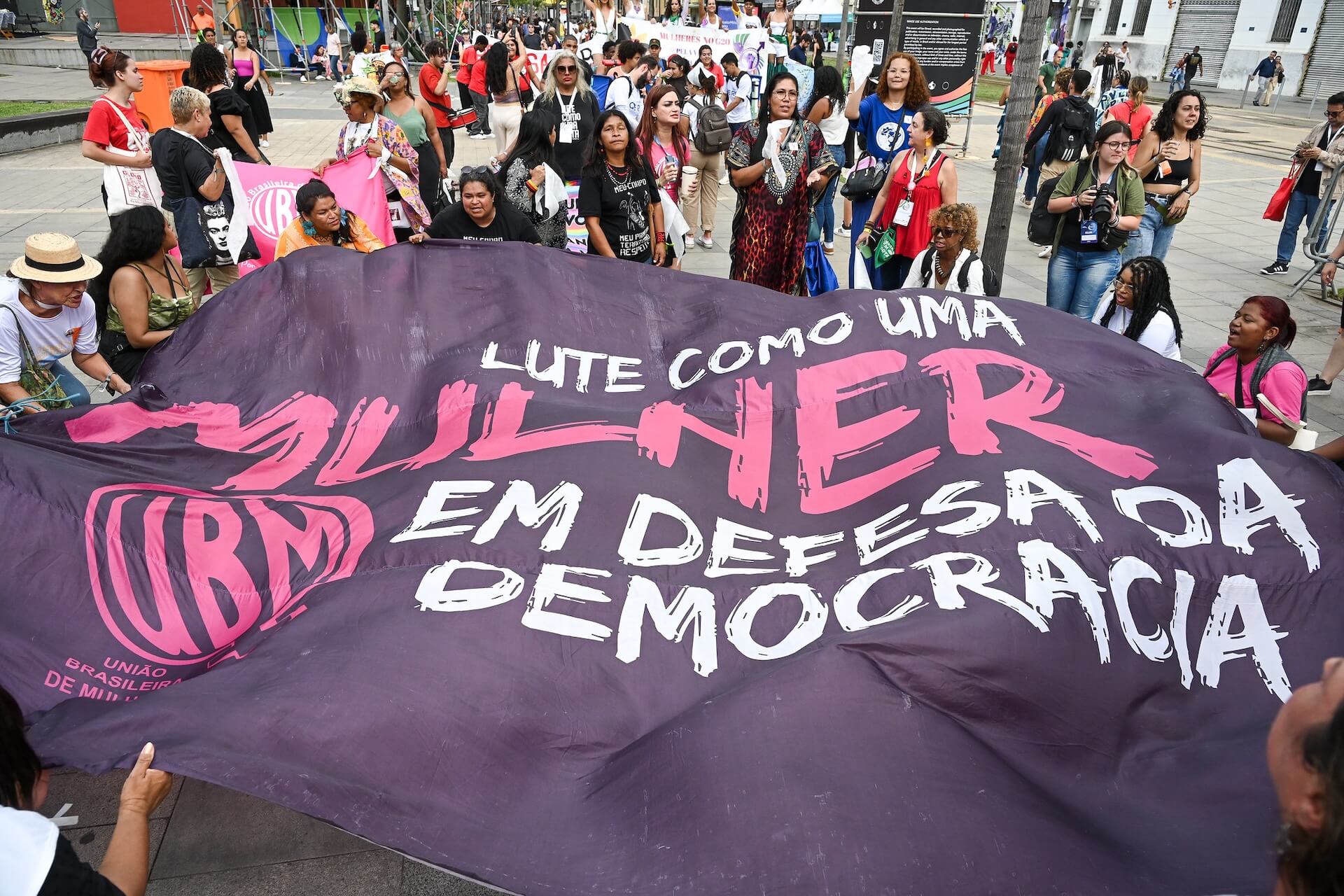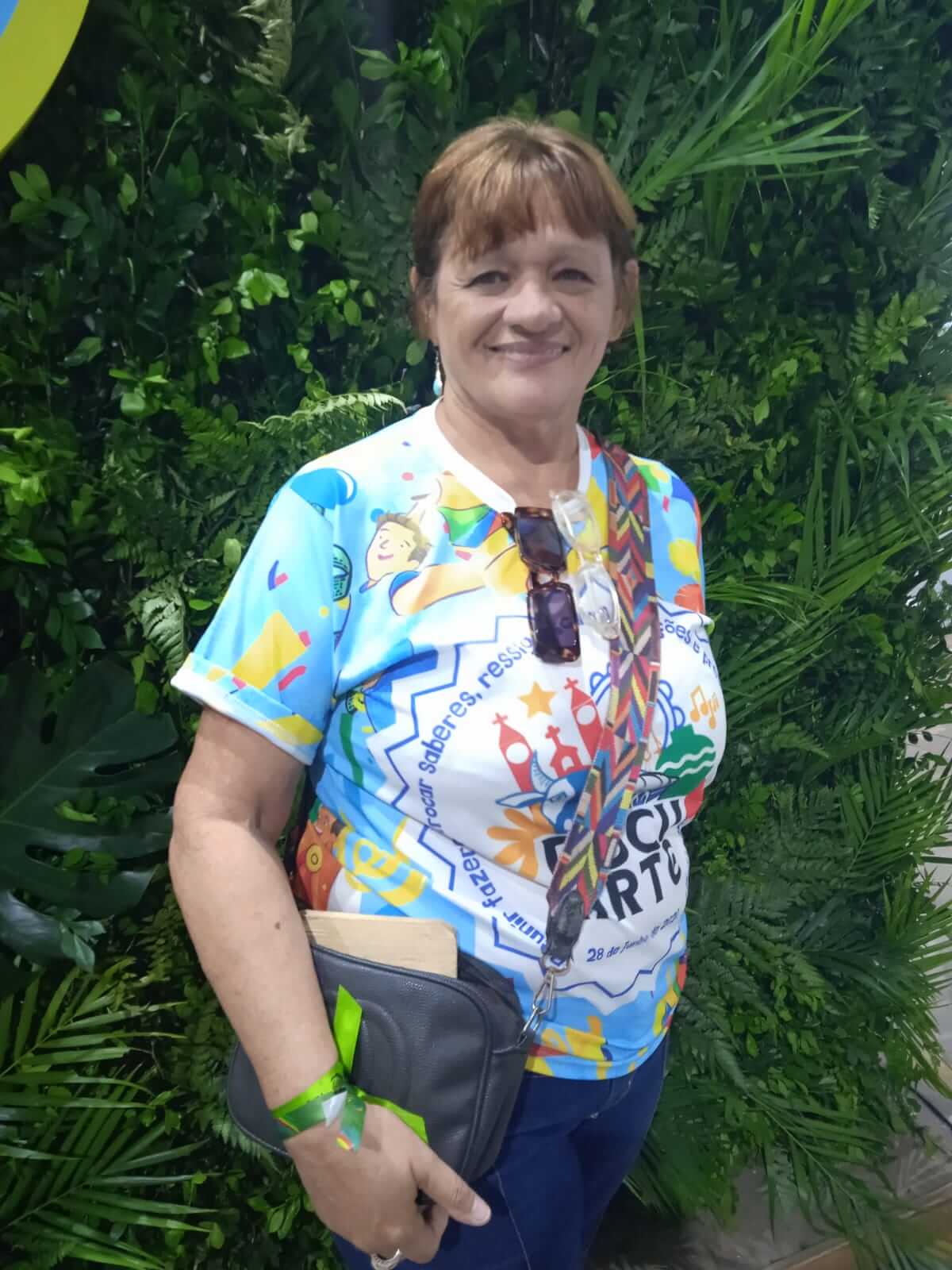Gender pay gap: women's struggle through the eyes of two generations
The G20 Social brought together social movements from all over Brasil and raised many discussions, including women and the labor market. An artisan from Alagoas with over 35 years of activity and a young student of economics from Rio de Janeiro participated in the meeting and talked about their experiences.

By Thayara Martins/ G20 Brasil
“Women are sufferers”, this powerful phrase was said by Maria Gilvaneide de Sousa, Secretary-General of the Federation of Organizations of Popular Culture and Crafts in Alagoas (Focuarte). The psychologist and artisan learned from her grandmother to make the so-called “witches” (bruxinhas) - typical cloth dolls dressed in costumes of Alagoas' pastoral culture. Now in her 60s, she is mostly involved in the Federation's administrative functions.
“We live in a state where there are not many opportunities and women's work is not very valued, you know? So, every day is a struggle to promote our work, our craftsmanship.” Maria Gilvaneide also presents an 82-year-old colleague who is considered a master and living heritage of the state of Alagoas - Ivonete Santo dos Anjos. Shy, she did not want to give an interview, but confirmed the suffering life of women in Northeast Brasil, a region where the female workforce is mainly informal.

According to a study by the Ministry of Women, in 2022, only 24.5% of Brazilian domestic workers had a formal employment contract. Domestic service is predominantly female in the country, as 5.3 million of the 5.7 million people employed in this sector in 2022 were women.
Even with so many difficulties, the friends happily awaited the go-ahead to show their handicrafts in the G20 Social space. After traveling for over 40 hours to the city of Rio de Janeiro, Maria Gilvaneide felt happy and more than ready to more fight. “I think it is important for these social movements to participate in moments like this at the G20 Social because it opens women's minds to conquer their place. We see that the majority here are women, they are warriors. So this is the way to achieve equal opportunities with men,” she said.
Income inequality
Not far from the artisans, there was a young woman with vibrant eyes, Luiza de Arruda Assunção, 19 years old. She was very excited and spoke enthusiastically about the future. The economics student at the Federal University of Rio de Janeiro (UFRJ) is in a class mostly composed of boys. However, Luiza is not intimidated, she likes the combination of mathematics with human and social sciences, and also feels that there is a growing number of girls in the field of economics. On the other hand, she knows that men still earn higher wages and says that her generation has a proactive attitude about it.
“In several lectures, many questions are asked by women and we have many female professors who encourage girls. We want to occupy our place, we have this right and the salaries must be the same as it is for men. I have a lot of faith that we will succeed in a few years, I hope that by the time I'm working this will already be a reality. I know it will be very challenging in the world of work, but I am not one to give up easily,” she said.
The student went to the G20 Social to attend lectures focused on her area of study and was impressed by the presence of people determined to change the country and influence international political debates, people who believe in not only financial but social development as well.
According to data from the Brazilian Institute of Geography and Statistics (IBGE), women work an average of three hours a week more than men, combining paid work, household chores and care work. Even so, despite having a higher level of education, they earn, on average, 76.5% of men's income.
G20 Social, women and economy
The discussion on women and the labor market took place in the self-managed activities "Feminist economy as an alternative to the world crisis" and "Overcoming Inequalities between men and women in the Labor Market: the relevance of the Equal Pay Law". The debates were part of the G20 Social program in Rio de Janeiro.
*Translated by PGET-UFSC